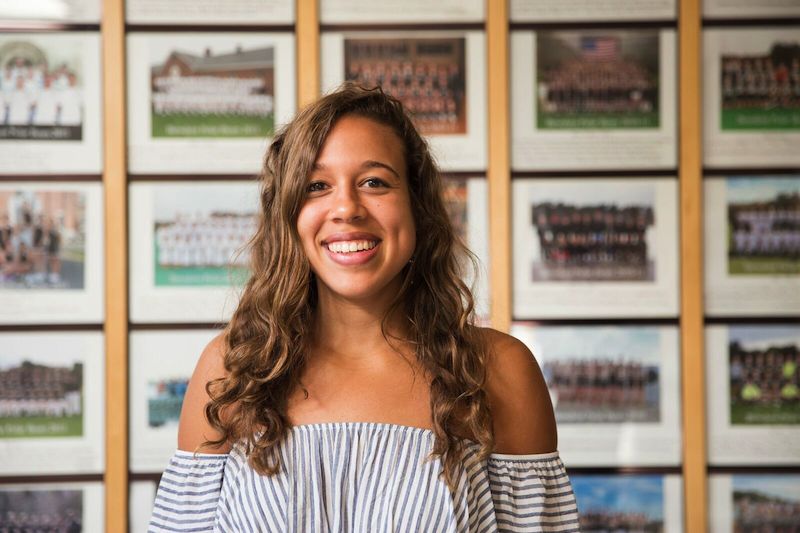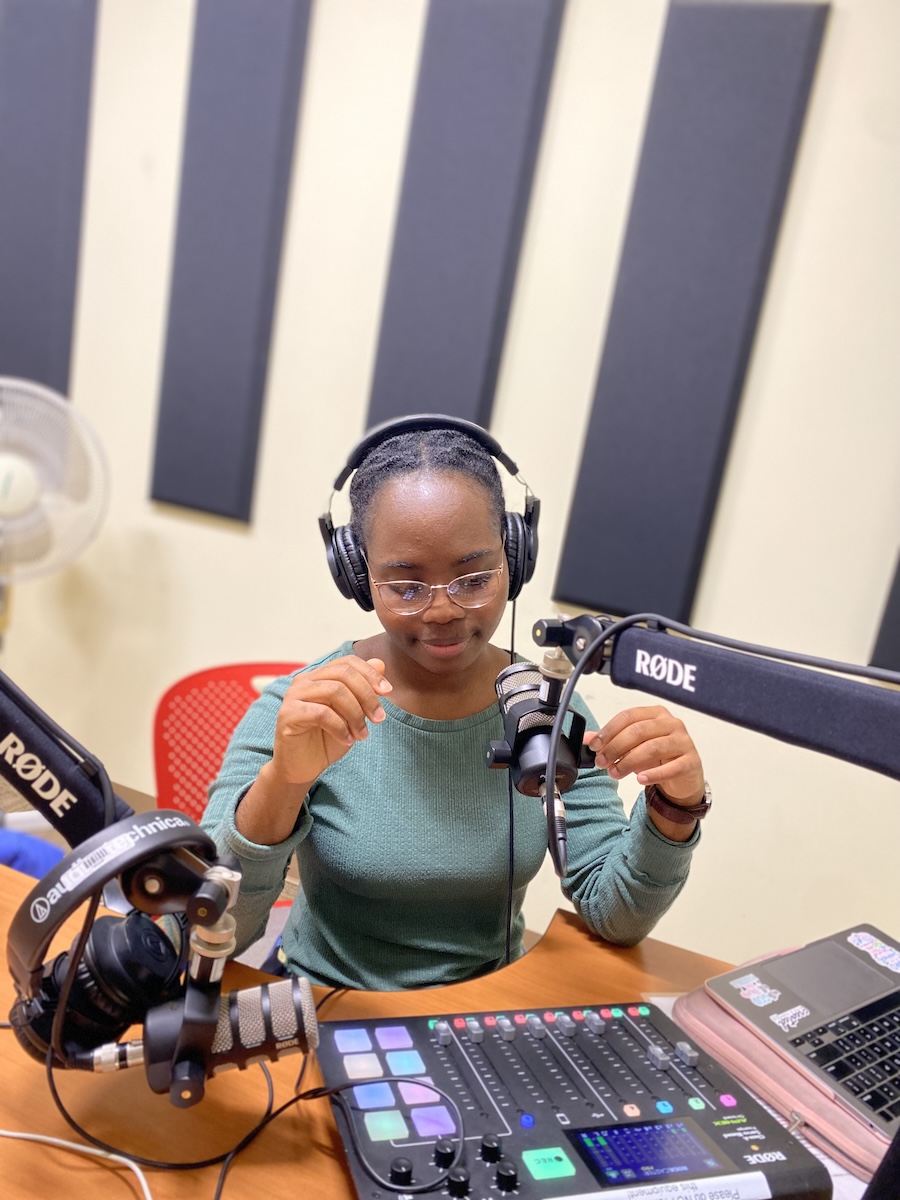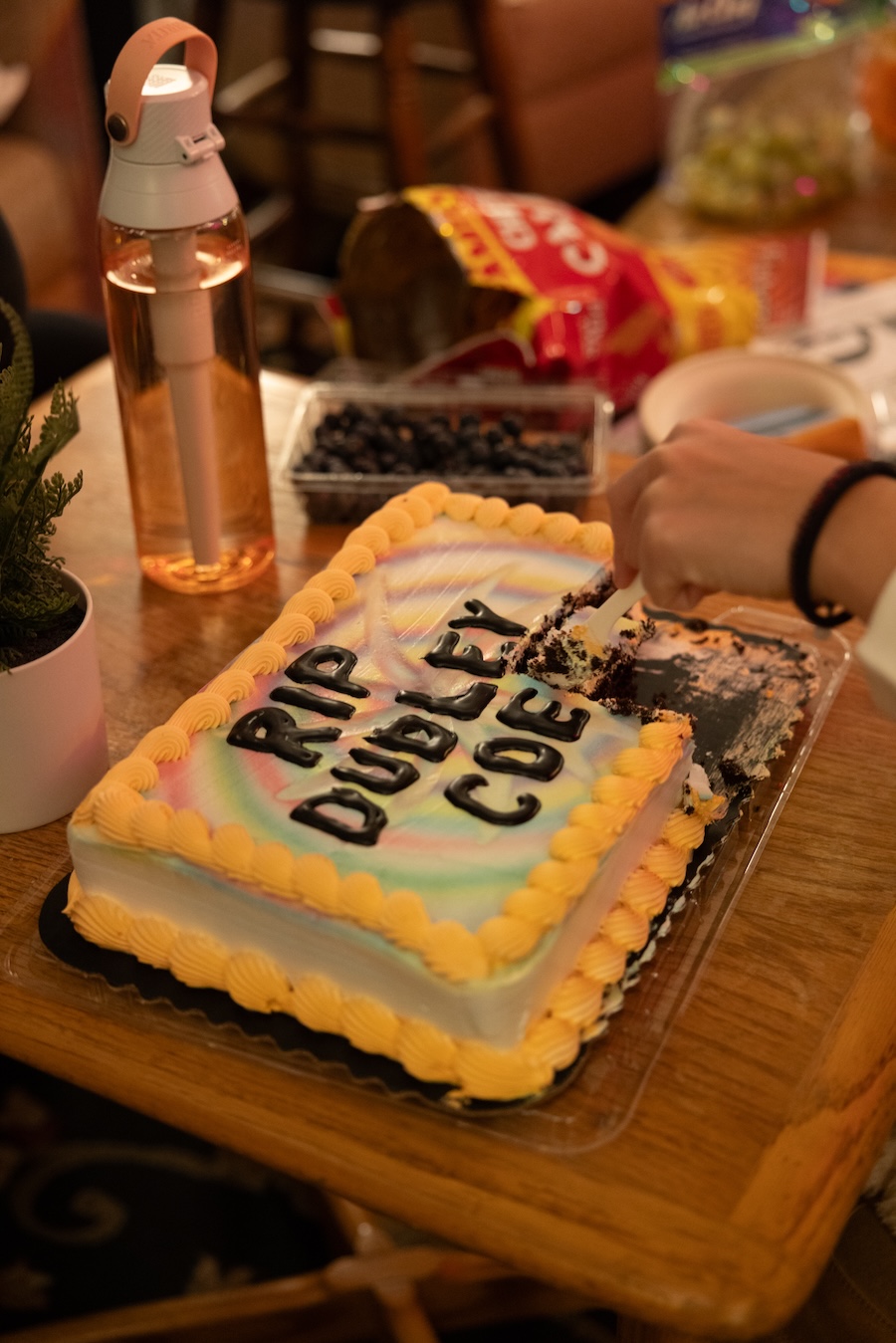Hannah Cooke ’18 Leads New Athletes of Color Coalition
By Rebecca Goldfine
A Bowdoin senior who has played for the college’s basketball, track, and squash teams — as well as been part of several dialogue-centered advocacy and conflict-resolution groups — has formed a new type of team.
The Bowdoin Athletes of Color Coalition, which Hannah Cooke ’18 founded last year, brings student-athletes of color together to reflect on their experiences playing sports. The group is, first and foremost, a network of students who can “work off of each other and explore what is challenging us, and be more reflective about things that were said, how situations were dealt with, and how we coped with certain challenges,” Cooke said.
Currently, more than 30 students have joined the group, representing basketball, soccer, rugby, football, field hockey, lacrosse, sailing, softball, baseball, and squash.
In addition to having the group be in regular communication with Director of Athletics Tim Ryan ’98, Cooke said she would like the coalition to eventually develop programming for the larger college community around issues of race, sports, and Bowdoin.
“Everybody should be able to be on a sports team, doing what they love, and feel supported and connected.”
—Hannah Cooke ’18
Ryan said the Athletes of Color Coalition’s mission aligns with his goal of increasing diversity throughout the athletics program, both by recruiting new players and retaining current ones. “In recent years, a focus for our department is to increase the diversity in our athletics programs, whether that’s race, socioeconomic status, or geography,” he said.
The Coalition and its members serve as an important liaison to him and his staff, Ryan said, letting them know what they can do to ensure all players feel like integral parts of their teams. “One of the great things about students at Bowdoin is that they are very invested in our community,” he added. “I want to make sure we’re doing anything we can to remove a barrier that might be making a student think about leaving the program.”
For instance, Ryan said it is helpful for him and other coaches to get feedback from students on the ways they are interacting with students and on the language they’re using — “some of the things we may not have thought about.”
Cooke, who grew up in a mixed-race family in Portland, Maine, (her father is from Jamaica and her mother is from Maine), had always been an avid athlete throughout school. Yet, she said her awareness of the ways race complicates sports began to deepen at Bowdoin. “One of the first times I experienced being the only person of color on a basketball team was here at Bowdoin,” she said.
Then a “perfect storm” of events occurred last year, inspiring Cooke to launch the Athletes of Color Coalition. For one, she was pursuing an independent research project investigating identity in American sports. “I had just started delving into research about how race and gender influenced the cultures, attitudes and norms within sports,” she said. She is majoring in Africana studies and government, and minoring in education.
Also, Cooke was working, as she continues to today, as a facilitator for Bowdoin’s Intergroup Dialogue program, which trains students to lead conversations about race with student groups across campus, including sports teams. In her first and second years at Bowdoin, Cooke worked for Seeds of Peace, a nonprofit conflict-resolution program for young people with a summer camp in Casco, Maine. Seeds of Peace focuses on developing peacemaking and leadership skills in young people, many of whom come from conflict-ridden areas of the world.
“I saw how people went about working through conflicts by talking through issues in intimate settings where there was no objective to prove a point or win a debate,” she said.
As her extracurricular and academic pursuits merged, and her own desire to better understand her personal experiences playing sports at Bowdoin grew, Cooke last year approached college administrators about starting the coalition. She figured some of her peers must also be grappling with similar issues. After all, she added, “college is a time to explore who we are and our position in society in this world.”
The students in the coalition meet weekly, on Sunday evenings. Cooke says her aim is to create a space “for athletes of color to talk about and bring light to some of the issues or challenges that exist for them in a historically white institution.” The students work through their ideas and observations, and also hear from others about how they have navigated some situations that can come with being a minority in a largely homogeneous group.
A component of her work with race and sports on campus is to strengthen the relationships among members of a team, which Cooke points out is critical to the success of both the team and the players. “Everybody should be able to be on a sports team, doing what they love, and feel supported and connected,” she said.



